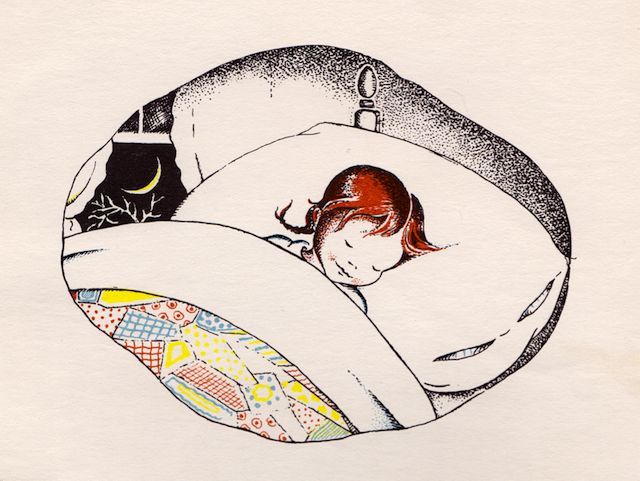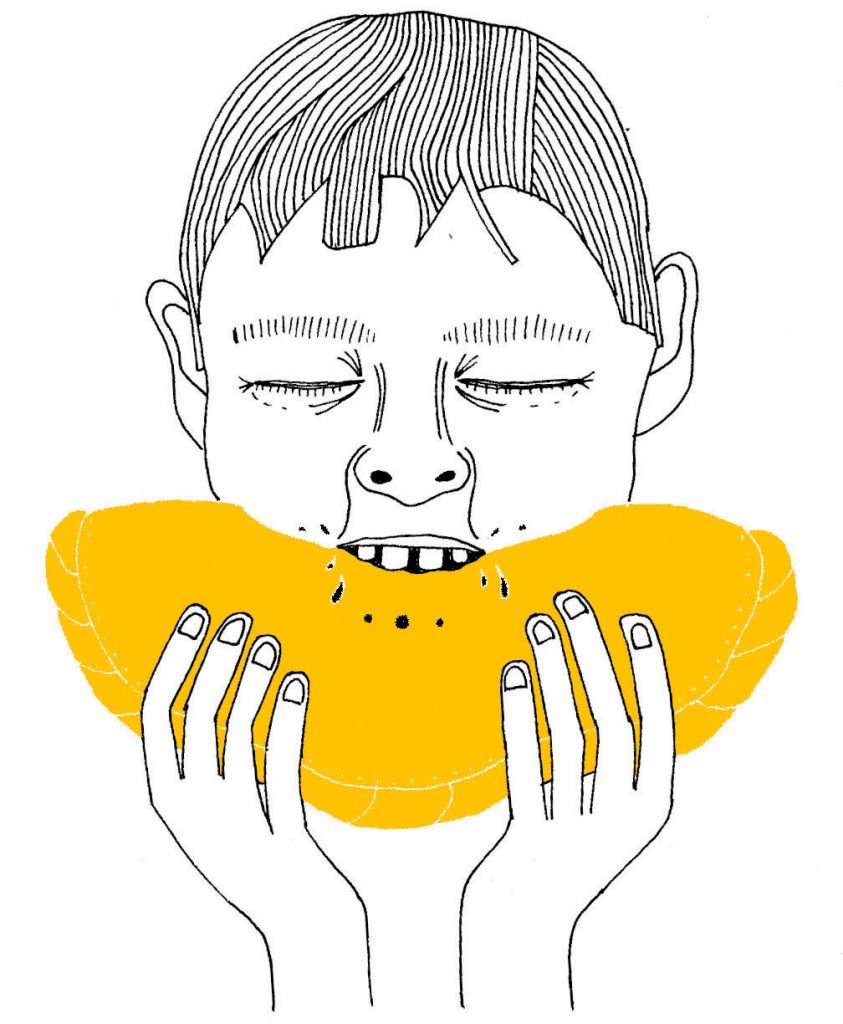Your brain is buzzing with thoughts all the time, but what happens when it becomes unhealthy? Millions of people think about food too much, to some it’s not a big deal, but to others, it can seriously impede their life.
Here are 9 expert given tips on how to stop thinking about food.
Navigate the article
#1 Filling Hungry Souls
It is easy to stop thinking about food when you are enjoying even greater pleasures. Food is meant to be pleasurable, but when we are overeating, it is not because our bodies are hungry. We overeat when our souls are hungry.
What's amazing is that as soon as we realize that, we can suddenly put down the bag of potato chips and text or call someone lonely, step outside to absorb some nature or stretch or dance to music that uplifts our souls whatever fills our souls.
When we nourish ourselves with lasting pleasures, our insatiable appetite is appeased. That's when we find that our inner emptiness has been replaced with the deepest kind of joy.
Contributors: Bracha Goetz from Bracha's Books
#2 Eat Until You Feel Full
This is an easy one: eat until you feel full, but eat the kind of food that is good for your body.
Human beings gain weight when they eat a diet that is too rich. This rich diet provides a lot of calories, but it does not have the bulk or the starch content to stick to your ribs. As a result, their appetite tells them to overeat. Since they take in more calories than they burn up, they gain weight.
The solution to this problem is to eat a low-fat, high-fiber diet with a lot of starch. On that kind of diet, your weight will correct itself even if you eat until you feel full.
Contributors: Laurie Thomas from Gorilla Protein
#3 I love myself more than I love this food
When I was on a fat loss protocol and still working in a restaurant some years ago, I thought about all the yummy and indulgent restaurant foods I was missing while serving it to others.
When I was tempted or thinking of my next fantasy meal too much, I clenched my fists together and squeezed as tight as I could. Then I closed my eyes and said quietly to myself, “I love myself more than I love this food.” I said it ten times with fists clenched the whole time. When I released my fists, the thoughts of the food dissipated. I was able to bounce back in the present moment and get back to work, serving others.
Contributors: KJ Landis from Superior Self series
#4 Don’t get on that train
Thoughts about food are like trains: They may park themselves in front of you, but you only want to get on one that will take you where you want to go. You don't get on any old train that passes by. You check to see that it's going to your destination. Thoughts are similar. You don't want to attach to thoughts that won't move you towards your goals. You have the power to manage your thoughts and decide which ones to pay attention to and which ones to let drift by. If you want to be healthy and live long, you'll want to connect only with thoughts that will lead to eating behaviors that will make this happen. Thinking about eating foods because you desire totake a break, feel bored or lonely, are putting off an unpleasant task, or feel upset will not bring you a quality life.
Contributors: Karen R. Koenig from KarenRKoenig
#5 Develop a Food Plan and Cut out all Sugars
To stop thinking about Food, make as many food decisions ahead of time as possible and cut out intense craving causing food.
Make your Food Plan as rote as you can. For example, eating the same breakfast will stop thoughts of what else you could be eating as you only eat eggs withsautéed spinach and a side of turkey bacon.
Eliminating Sugar and Flour will also decrease the thoughts of food as they bothtend to provoke cravings and many of have learned to associate them withemotions good or bad. Be aware our body processes flour in a similar manner asSugar, so both will need to go.
When we always eat the same foods for lunch, and they are healthy, what is there to think about? In a few weeks, unnecessary thoughts of food will fade away as we detox from Sugar and Flour. Adopting a regular Food Plan up levels ones thinking from the mindset Food should be interesting and give us enjoyment to Food is Fuel.
Contributors: Erin Wathen from EW Wellness Solutions LLC
#6 Get a Good Night’s Sleep
People who sleep six hours or fewer on average consumer an additional 300+calories per day as a result. This is largely due to the fact that sleep deprivation causes an increase in levels of ghrelin, a hunger hormone, and a decrease in levels of leptin, a hormone that helps you feel full. Furthermore, lack of sleep negatively impacts willpower and causes your body to crave sweets and other carb-loadedfood.
Contributors: Chris Brantner from SleepZoo
#7 Once You Stop Trying to Control Food, Food Stops Controlling You
The more we restrict our foods, the more we send our brains the message that food is scarce and thus, the body gets triggered into starvation mode. When we diet or restrict calories or specific foods, and feel guilt or shame around eating those “off limit or bad foods,” our bodies feel threatened that it will not be fed when or what it needs. This mimics a famine response and the body turns the main focus and priority to finding and eating food. This is why people then feel “crazy or out of control around food” and binge. Not only make up for the deprivation, but to alsoeat enough for the future famine. They feel as if food controls their life. As a result of chronic dieting, the body does not trust it will be consistently fed. As a biological survival response to the prolonged energy deficit, deprivation and starvation, the body will lower the metabolism as a conservation technique to conserve energy and extract as much energy that does come in from the limited income.
If one wants to stop thinking about food, they must stop restricting their body of essential macronutrients, types of foods, amounts of foods and feel guilt or shame around eating. Quitting the endless yoyo dieting, cutting specific foods, food groups or calories, will allow their mind to stop being obsessed with food for good.
Contributors: Kayla Rose Kotecki from Damn the Diets
#8 Connect to your appetite
Unless you're a chef, you don't need to spend all that much time thinking about food. Sure, you want to give it enough thought to decide what you're going to buy at the supermarket and make for dinner. And you want to know enough about food to determine which ones are more and less nutritious.
But beyond that, for the most part, you need to let your innate appetite cues manage your eating. If you pay attention, your body will tell you when you're hungry. You may feel fatigue, headachy, or inattentive, and your stomach may be grumbling. Moreover, your thoughts may turn to food because ghrelin, the hunger hormone, is in ascendance to help you remember to eat.
Rely on bodies cues for hunger and physical cravings to tell you what and when to eat. That's your body's job. Be mindful as you eat and pay attention to signals for fullness (quantity) and satisfaction (quality). Use rational thinking intentionally to help you make (mostly) nutritious choices. Once you connect to innate appetite cues, you can begin to trust your body to feed and nourish you and free up your mind for thinking about other things.
Contributors: Karen R. Koenig from KarenRKoenig
#9 Give Yourself Permission To Eat
The best way to stop a food preoccupation in its tracks is to give yourself permission to eat. Intuitive Eating is getting back in touch with your innate knowledge the knowledge you were born with. We are born understanding hunger and satiety (fullness) cues. As we get older and experience body dissatisfaction and social pressures, we start to restrict our nutrition intake in the hopes that we can be smaller. This restriction leads to cravings, cravings lead to overindulgence, and overindulgence leads to guilt and shame then covered up by more forbidden food. Giving yourself permission to eat, and to enjoy, foods that you love and gettingback in touch with your body signals is the best way to free up the valuable mental real estate being taken up with food obsession. If you're interested in ditching the diet mentality, and pursuing true and comprehensive health without the food obsession, look at Intuitive Eating.
Contributors: Yaffi Lvova from Baby Bloom Nutrition
-
Great post, thank you
This post was created with our nice and easy submission form. Create your post!

















